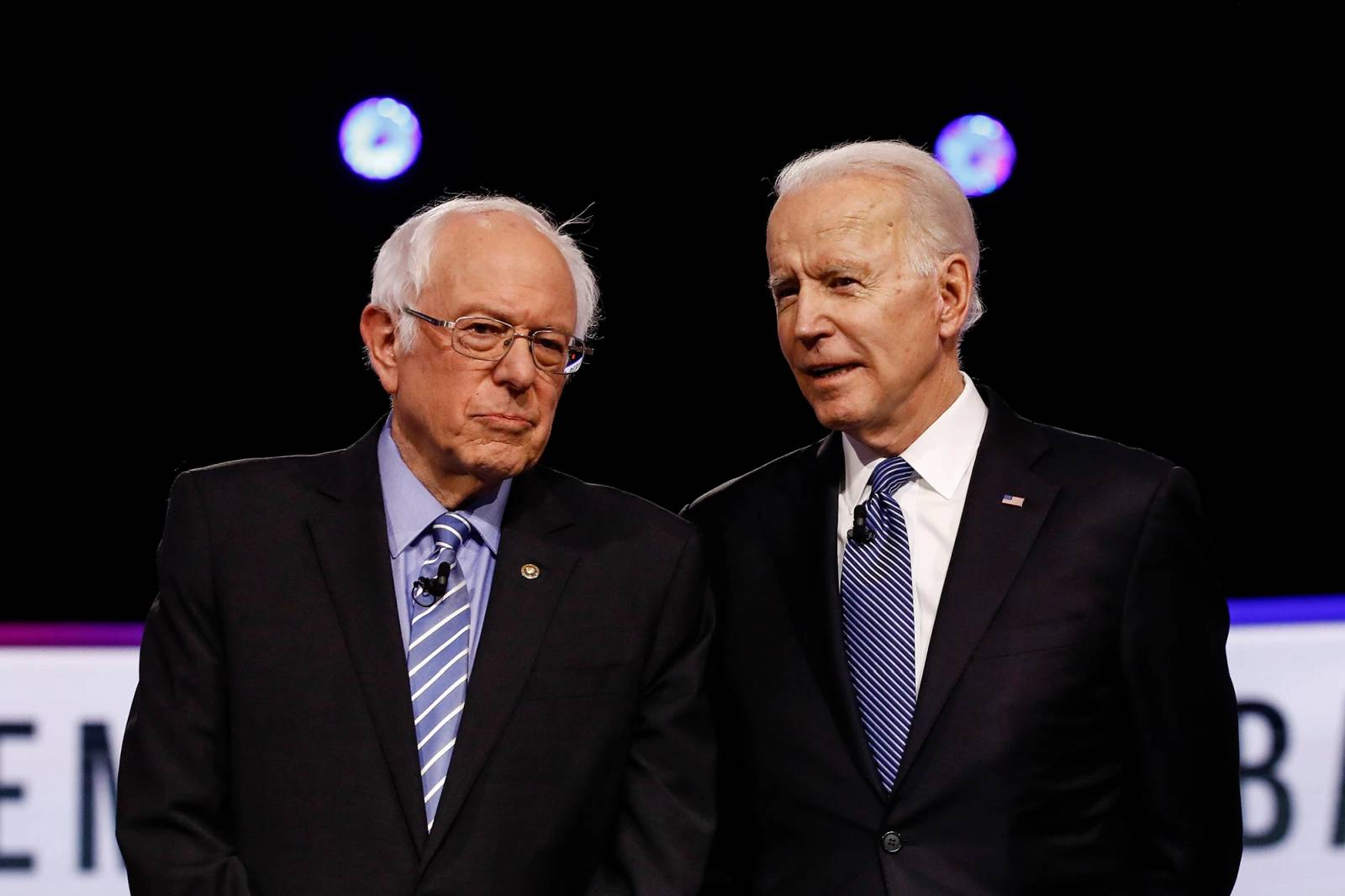Some analysts are calling it Super Tuesday 2, or Mini-Super Tuesday, but whatever you call it, there are six more states voting in the Democratic primary on March 10. Out of the six, there has been some polling done very recently that indicates former vice president Joe Biden is favored in four of them, while the two northwestern states of Idaho and North Dakota could be fertile for Sanders like they were in 2016.
The state of Washington, which will hold a formal primary this time instead of a caucus, looks to be trending toward Biden but remains the closest contest of the night. Here’s a breakdown of what’s happening around the country on Tuesday.
All these states will vote on Tuesday, March 10.
Idaho Primary
Democratic delegates at stake: 20
Republican delegates at stake: 32
Idaho has also made a switch to a primary this year instead of a caucus, which the state Democratic Party conducted in 2016. Operating as a primary lends a better shot for Joe Biden than a caucus, but Bernie Sanders won the caucus in 2016 with around 80% of the vote. Obviously, a primary will be different, and there is no real polling from the state, so the race could be said to favor Sanders from a historical perspective, but is probably labeled more conservatively as a toss-up.
Michigan Primary
Democratic delegates at stake: 125
Republican delegates at stake: 73
Michigan is a state which Bernie Sanders won in an “upset” in 2016, though Sanders said that was only because a poll the day before showed him down twenty points against Hillary Clinton. While the state had favorable polling for Sanders in early February, recent polls have given Biden a sizable lead, upwards of twenty points. Unless another major upset occurs, Biden could win Michigan easily on Tuesday which, some analysts would argue, could be a major blow to Sanders since he won the state four years ago.
Mississippi Primary
Democratic delegates at stake: 36
Republican delegates at stake: 39
Mississippi is a state which heavily favors Joe Biden and a state where Hillary Clinton won in 2016 by 65 points. There have been no recent polls conducted in the state, but in terms of demographics, the state is closer to South Carolina with regard to the African-American voting population in the Democratic primary which means Biden should naturally have a stronger advantage.
Missouri Primary
Democratic delegates at stake: 68
Republican delegates at stake: 54
As many as a few days ago, the Missouri Democratic primary was looking tighter with Biden holding on to a small lead of around four to six points. Then a more recent poll dropped on March 6 which gave Biden a twenty-two point lead over Sanders. Then, this morning, a new poll showed Biden at a thirty-point lead. If Missouri holds similar to other midwest states and heads to the Biden column, the state will probably end up looking more lopsided in favor of Biden than early polling would’ve suggested. Both campaigns are spending money in the state and aside from an upset in Michigan, Missouri could be another spot where Sanders hopes to overperform the poll numbers.
North Dakota Democratic Caucuses
Democratic delegates at stake: 14
As it did in 2016, North Dakota will again hold a caucus rather than a primary. This format tends to favor the candidate with enthusiasm and engaged supporters willing to spend the time attending a caucus and organizing voters. Sanders beat Hillary Clinton in North Dakota with 64% of the vote in 2016, and it’s possible he will once again take home the handful of delegates offered in this contest. There has been no recent polling of the state, so it could be more accurately labeled as a toss-up, with a favorable lean toward Sanders.
Washington Primary
Democratic delegates at stake: 89
Republican delegates at stake: 44
The Democratic Party of Washington decided to scrap their caucus, which they held in 2016, in favor of a statewide primary. Recent polls indicate a very, very close race and Washington remains another state where Sanders could pull a victory. Sanders did very well in the 2016 caucus, winning every county and 75% of the delegates over Hillary Clinton, but a primary setting will give Biden a better shot. This race will be down to the wire on Tuesday. Recent polls show Biden with a two-point lead on average which is well within the statistical margin of error for most polls.
In the end, a good night for Biden would be a victory in four, maybe five states, which would give him a noteworthy delegate haul. If Bernie can win Idaho, North Dakota, and then come out with a win in Washington, that would at least giving him a strong argument to press on toward the next Democratic debate on March 15.
Donate Now to Support Election Central
- Help defend independent journalism
- Directly support this website and our efforts
